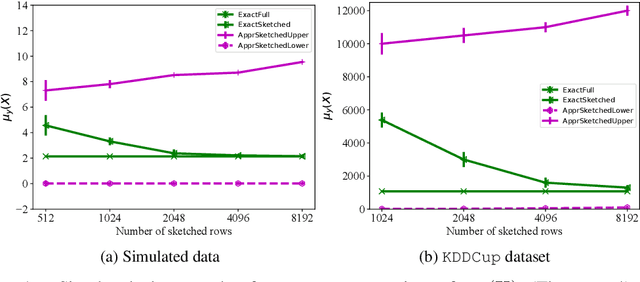The Space Complexity of Approximating Logistic Loss
Paper and Code
Dec 03, 2024
We provide space complexity lower bounds for data structures that approximate logistic loss up to $\epsilon$-relative error on a logistic regression problem with data $\mathbf{X} \in \mathbb{R}^{n \times d}$ and labels $\mathbf{y} \in \{-1,1\}^d$. The space complexity of existing coreset constructions depend on a natural complexity measure $\mu_\mathbf{y}(\mathbf{X})$, first defined in (Munteanu, 2018). We give an $\tilde{\Omega}(\frac{d}{\epsilon^2})$ space complexity lower bound in the regime $\mu_\mathbf{y}(\mathbf{X}) = O(1)$ that shows existing coresets are optimal in this regime up to lower order factors. We also prove a general $\tilde{\Omega}(d\cdot \mu_\mathbf{y}(\mathbf{X}))$ space lower bound when $\epsilon$ is constant, showing that the dependency on $\mu_\mathbf{y}(\mathbf{X})$ is not an artifact of mergeable coresets. Finally, we refute a prior conjecture that $\mu_\mathbf{y}(\mathbf{X})$ is hard to compute by providing an efficient linear programming formulation, and we empirically compare our algorithm to prior approximate methods.
 Add to Chrome
Add to Chrome Add to Firefox
Add to Firefox Add to Edge
Add to Edge